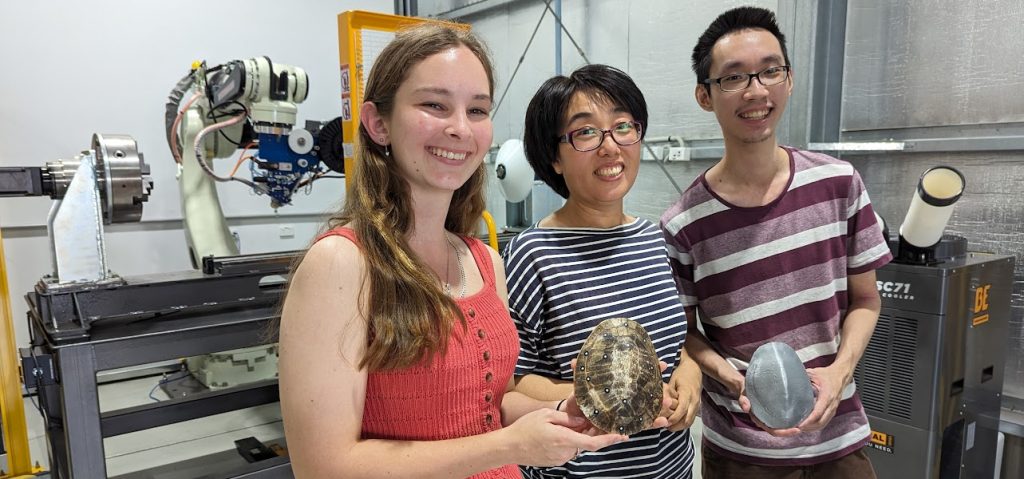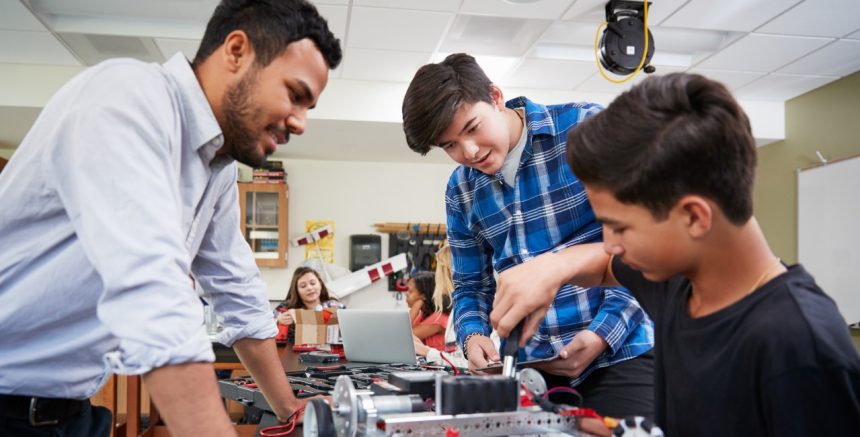Sparking student interest early could be the answer to solving Australia’s growing engineering skills crisis.
Demand for engineering talent has continued to outpace supply in recent months, with the need for more engineers growing three times faster than the general workforce.
Late last year, research by Engineers Australia highlighted the state of Australia’s engineering industry, even warning of a potential industry collapse if labour shortages aren’t addressed.
The need for more skilled workers in the sector has STEM educators aiming to build student interest early in their career decision-making process.
Tertiary STEM education mentoring programs in the Northern Territory allow high-school students to see what it’s like to study science, technology, engineering or math fields to inspire them into engineering careers.
The Inspired NT’s Stage 2 Real Science Program will allow the students to experience what it’s like to study at university, learn about the tertiary pathways open to them, and develop confidence in themselves and their abilities.
Post-graduate STEM students will mentor high schoolers through engineering-related projects from planning and execution to presenting – giving them a chance to develop a passion for the sector.
Students from the Northern Territory’s Casuarina Senior College and Darwin High School recently toured the Charles Darwin University campus as part of the
Mentor and CDU PhD candidate Cedric Tan is currently developing and testing ways to reduce metal corrosion at the university and is looking forward to sharing his knowledge with the future generation of students.
“I’m hoping the students will realise that science isn’t necessarily scary,” Mr Tan said.
“It’s a very involved experience. It’s a lot of problem-solving and being sure you’re engaged, but if you can find something you’re passionate about, you’re going to get something out of it.”

“People might assume science is hard but so long as you’re interested, you can easily challenge and solve complex problems. We live in a world full of environmental problems and we need more people with a different approach to solving these problems.”
Australia requires more than half a million engineers as part of its day-to-day operations, many of whom are integral to Australia’s critical industries and complex infrastructure needs.
Despite a significant increase in qualified engineers in the five years before 2021, labour shortages are reported in several critical industries, including construction, renewable energy and power systems.
Program coordinator and CDU Senior Lecturer in STEM Pathways, Dr Carla Eisemberg, says one of the reasons fewer students are entering STEM careers is the misconception that the field is too complex to learn.
“The idea you need to be an Einstein to be doing STEM is wrong,” Dr Eisemberg said.
“We need people with everyday skills to become scientists and engineers because we need people who have different ways of thinking. There is no innovation without diversity.
Former Casuarina Senior College student Jessie Duncan participated in last year’s program and is now studying at CDU.
“The program opened my eyes to how many opportunities I have in this field, what I want to experience and how in-depth I can go with research,” she said.
“It doesn’t matter how much knowledge of science you already have. You learn everything you need as you go, and it’s so beneficial.”







